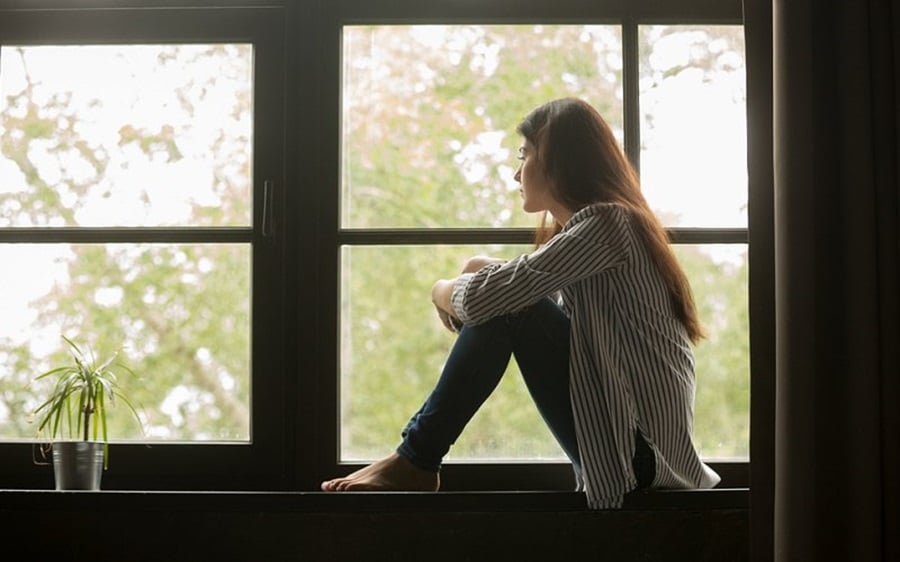There are many reasons to use solar energy to power your home or business. As one of the earth’s infinite resources, solar power is a great energy source that can generate power that you otherwise have to purchase from your local utility. With the electricity costs increasing by the day, especially due to changing climatic conditions, switching to solar power can help lock in decades of predictable energy costs. Other than that, installing solar panels in your home or office helps contribute to a cleaner and more sustainable future.
Contents
- 1 Environmental Impact Of Going Solar
- 2 It Will Reduce Greenhouse Gas And Co2 Emissions
- 3 It Saves Water
- 4 It Reduces Strain On Finite Resources
- 5 How Does Solar Energy Work?
- 6 Cost Difference For An Average Household In Energy Bills/Cost
- 7 Financing Options for Solar Panels
- 8 Buying
- 9 Leasing
- 10 Free Installation Opportunities
- 11 Things to Consider When Going Solar
- 12 Backup Energy Source
- 13 Time And Effort
- 14 Replacement Cost/Longevity
Environmental Impact Of Going Solar
Apart from lowering your electricity bill, going solar has a major environmental impact as well.
It Will Reduce Greenhouse Gas And Co2 Emissions

The average U.S. home consumes around 10,000-kilowatt-hours of electricity yearly. A medium-sized solar energy system can reduce this number by almost a whopping 80%. In fact, some solar systems can even bring this number down by 100%. By doing so, solar energy can help reduce Co2 and greenhouse gas emissions significantly.
It Saves Water

Every manufacturing process, including electricity production, requires some water. Water is also a major requirement in the solar panel production process. However, the total amount of water required to generate solar electricity is magnificently lesser than the traditional electricity sources. Older technologies such as natural gas, nuclear, and coal facilities require water for cooling purposes. So, by going solar, you dramatically reduce any strain on local waterbodies.
It Reduces Strain On Finite Resources

Even though the global population continues to expand, the earth’s natural resources remain pretty limited. There’s only a finite amount of coal, oil, and natural gas that we can use. The sun, on the other hand, is the most abundant energy source of the earth. It produces an astounding 173,000 terawatts of solar energy every second, almost 10,000 times the total combined energy use. Therefore, going solar helps conserve the earth’s finite and precious natural resources by utilizing a source with immense power and unlimited supply.
How Does Solar Energy Work?

Solar panels are constructed with silicon photovoltaic (PV) cells that absorb the sun’s rays and produce electricity. Your solar panels produce electricity known as Direct Current (DC) electricity, which isn’t suitable to power your home directly. Instead, the direct current is directed to your central or micro-inverter, where it is converted into Alternating Current (AC) electricity to power your home appliances.
A switchboard helps the usable Alternating Current (AC) electricity be sent out through your home to power your appliances. The switchboard’s main job is to ensure that your solar energy is utilized first to power your home. In case your solar production isn’t enough, the switchboard will have to access additional energy from the grid.
Every household with solar panels has to get a bi-directional or utility meter installed. Your electricity retailer typically does this. This meter can record all the power drawn to your home and the amount of solar energy exported back to the grid.
Cost Difference For An Average Household In Energy Bills/Cost
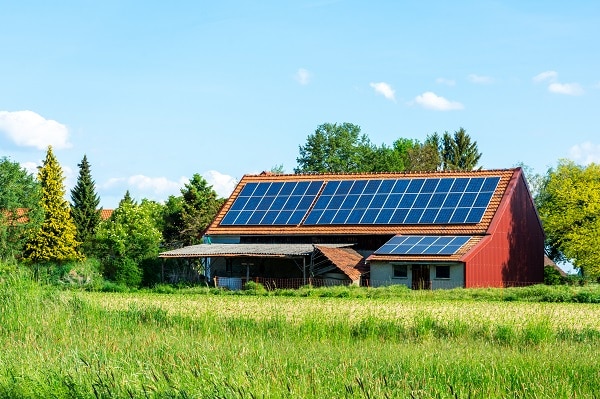
The average electric utility rate of a residence in the US is around 13.9 cents per kilowatt-hour. Electricity costs have experienced a considerable number of fluctuations over the years – but overall, they have increased significantly. While in some places the electricity rate has increased 4% on average over the last decade, other places have experienced almost a 40% hike in the rates.
Installing a solar energy system in your residence or business can help you protect yourself against these unpredictable fluctuations and increases. Even though the purchasing and installation charges of a solar energy system are rather high, but you can save thousands of dollars in the long run.
However, it’s important to know that a few factors come into play here. It’s all about your home’s location – the local weather, your property structure, and the availability of the sun – which can impact the cost-effectiveness of your solar system considerably.
Financing Options for Solar Panels
Buying

Solar panels aren’t the easiest thing to buy and install. The number of panels you need depends on how much power your home or business requires. Those who can afford solar panels can buy them directly without opting for any financial help. However, everyone can’t afford to buy and install solar panels, given that they are considerably expensive.
Leasing
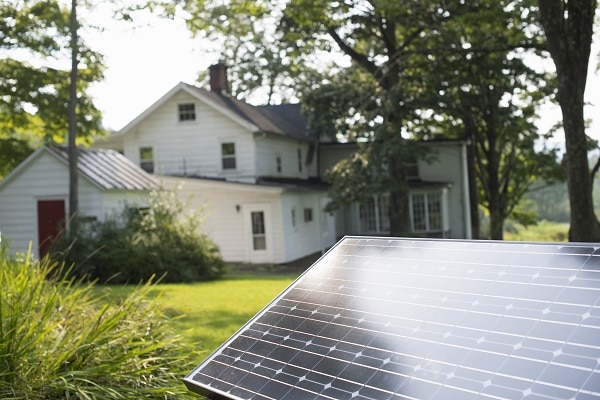
If you can’t buy a solar system in cash, you can always opt for a solar lease or power purchase agreement. By opting for a solar lease or PPA, a third-part will install solar panels on your property, while you will have to pay them a below-market rate to use the solar electricity. Opting for this finance method can help you save between 10 to 30 percent a month on your electricity bill without having to make any investment.
Free Installation Opportunities
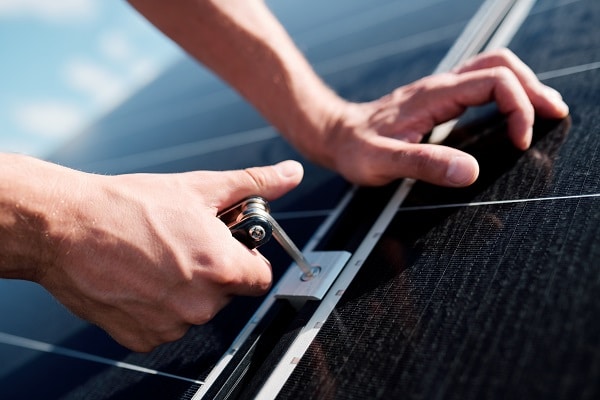
If your property is at a rather suitable location, some energy companies, and solar PV suppliers may be willing to fit solar panels on your property for even. In fact, some companies may even pay you a few hundred dollars to encourage you to allow them to install solar panels on your property. This may seem fishy, but these companies have certain requirements of their own.
Things to Consider When Going Solar
While solar energy is a great power source, there are a few things you need to consider before getting them installed.
Backup Energy Source

It’s always good to have a backup energy source. Solar panels don’t always store ample amounts of sunlight that can power your entire property throughout the day. In such cases, this happens mainly due to the location of your property and the local weather. So, if you opt for a solar system, it’s best to go with an on-grid one. An on-grid solar panel system ensures that your home remains connected to the city’s electricity grid for a continuous supply of power when required.
Time And Effort
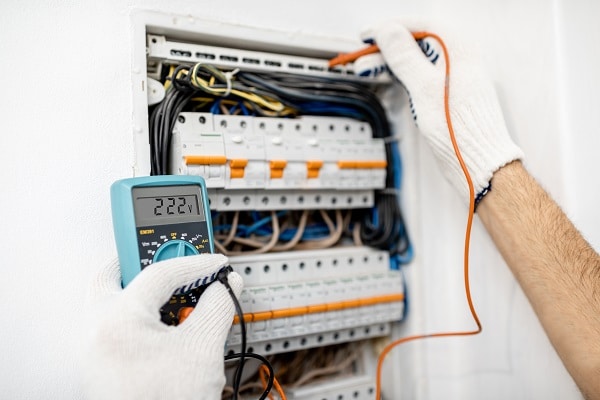
The installation and maintenance of solar panels require your time and effort; it isn’t just a one-off thing. Establishing a proper maintenance procedure is the key to ensuring that your solar panels remain in good condition. Failure to care for your solar panels can reduce their lifespan.
Replacement Cost/Longevity

Most solar panels have a life of almost 25 years. So, you should opt for a solar system installer that you can trust. Solar systems also have other components, such as inverters that need to be changed at least twice during the life of your solar system. In case your solar panels need to be repaired, you can expect to spend an average of $715. Depending on the time and level of damage, you will probably have to pay between $195 and $1,236 to get your solar panels up and running. So, you must take some time to research your solar panel provider before you buy from them.
All in all, solar panels are the best choice if you’re moving towards sustainable living. You can save on your electricity bill and make a huge difference for the planet by opting for solar energy as your power source!
